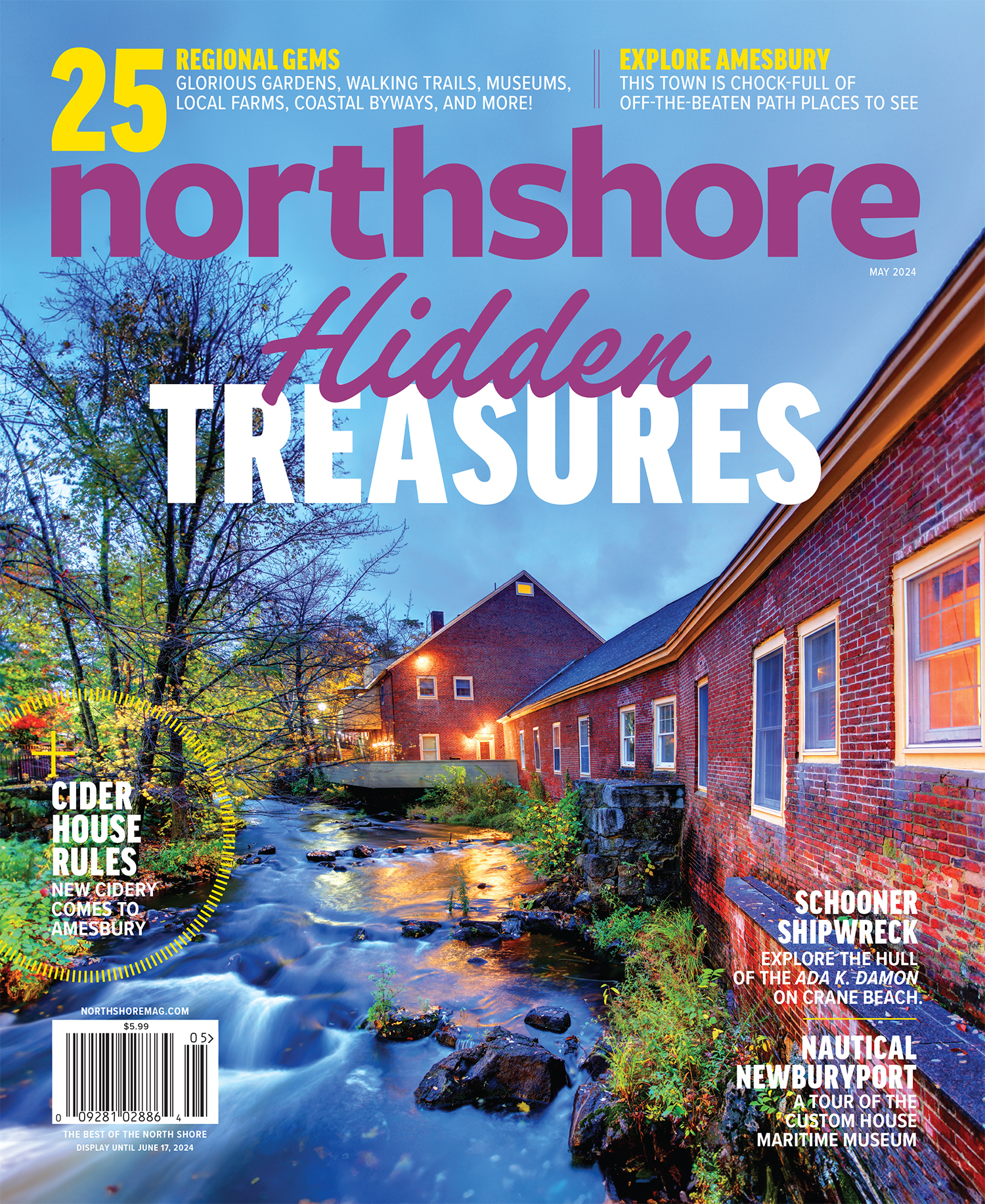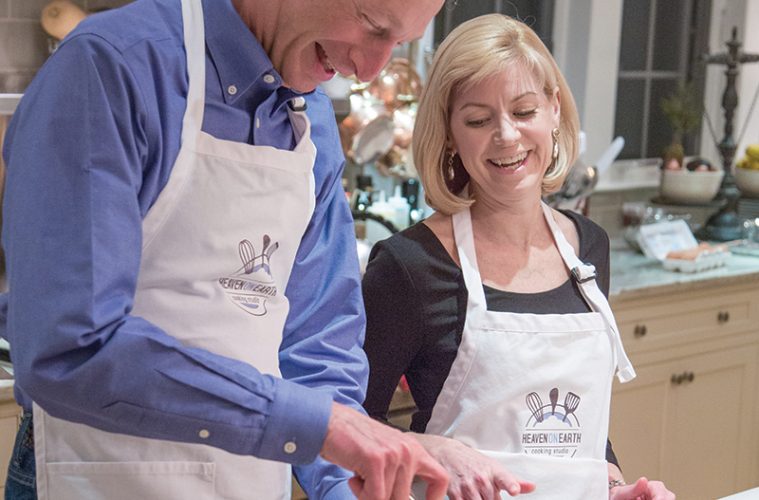Lila Haynes is a lot like her kitchen—a hybrid of professionalism and personality, practicality and warmth. Those two characteristics work hand in hand every time she holds a group cooking class in her home.
There, she shows her students—people of all ages from the North Shore, Boston, and even the South Shore—how to create menus like an “Easy Tuscan Dinner” (roasted red pepper Napoleons, mesclun and melon salad, chicken under a brick, and Tuscan fries followed by limoncello zabaglione). “I also love to teach classes based on traveling I’ve done with my husband.” That means the likes of her “Memories of the Middle East” class. Think Turkish salad with pan-fried haloumi, tomatoes, and olives; chicken thighs with chermoula sauce; couscous with golden raisins and apricots; and oranges in spicy caramel sauce over ginger ice cream.
A self-taught chef, Haynes grew up in a food-loving family. (Her father had a penchant for binge cooking specific cuisines for long stretches at a time, which would see the family eating Chinese food for a month or Italian dishes for weeks on end.) After majoring in education at UMass Amherst, Haynes became a teacher in Connecticut. During one summer break, she worked as the food buyer at a fine foods and kitchenware store that housed a cooking school. She started assisting in the classes, which is where she learned the chef-driven concepts of good ingredients, seasonal cooking, and creative preparation.
Decades later, after she’d had two kids and spent years lovingly cooking meals for her family, the kids went off to college, and she got the itch to start cooking professionally again. That’s when she decided to dovetail her teaching skills with her love of cooking and came up with the idea to open a business, Heaven On Earth Cooking Studio.
“My original idea was to go to people’s homes and teach them there,” she says. “But lugging all the equipment and food around was too time-intensive. So when I had the opportunity to change some things in the house and renovate the kitchen, I figured, Why not hold the classes there?”
So she rolled up her sleeves and started planning, pulling images and inspiration from Haus and Pinterest. Then she called architect Ben Nutter, and together they fine-tuned the space. They created two separate rooms—the kitchen and the dining area—that open to one another. “We had to have enough room for lots of easy storage and also space for up to 10 people in the dining area. That wasn’t easy,” she recalls. “My goal was to make a very warm and friendly kitchen—to make it approachable and not intimidating.” Her house is a Colonial, so they wanted clean lines, but with a farmhouse feel to the kitchen. “I wanted a functional kitchen for our family to enjoy, but one that also works for the business.”
“Ben put up with my long list of wants and needs, and he did an amazing job of making all of them happen.”
Now, two and a half years later, her labor of love has become a full-blown reality. Throughout the year, she prepares for and teaches classes, picking recipes and menus that are seasonal and highlight many ingredients that are likely familiar to her students, and others she hopes are new but easy enough to find when they go to prepare the meal later on their own.
It’s unquestionably hard work; she estimates that she puts weeks’ worth of time into creating each class—researching the dishes and the culture of their origin, testing recipes, and planning the structure of the classes themselves. And then there’s the preparation she does the day of the class, getting up at 7 a.m. to get ready for that evening’s lesson.
The payoff? “Watching people have fun and learn and meet other people who love doing the same [kinds of things],” she says. “For example, in the ‘Couples’ Night Out’ class, I love teaching that because so often it’s couples who don’t know each other at first, but by the end of the class they’re exchanging phone numbers and walking away as new friends.”

